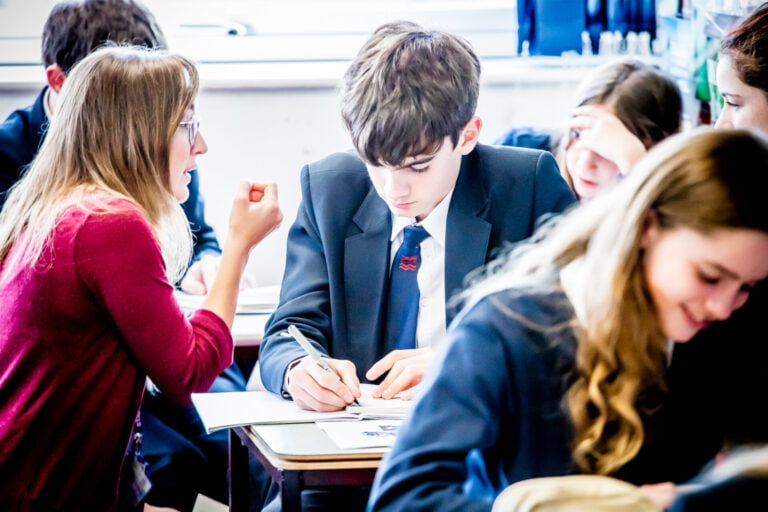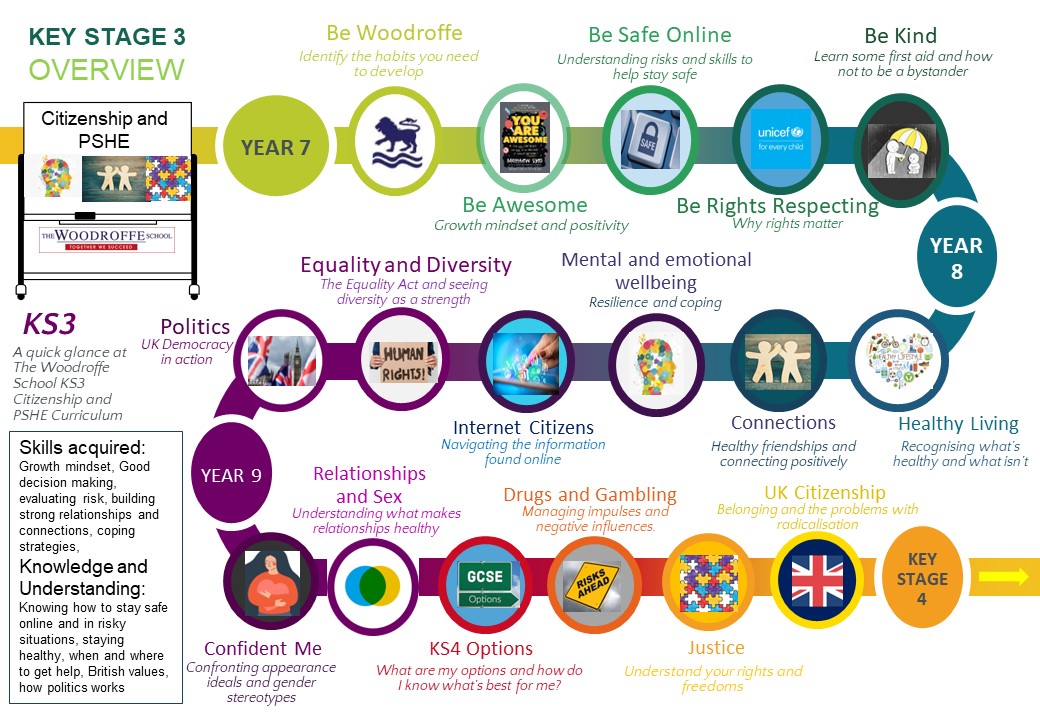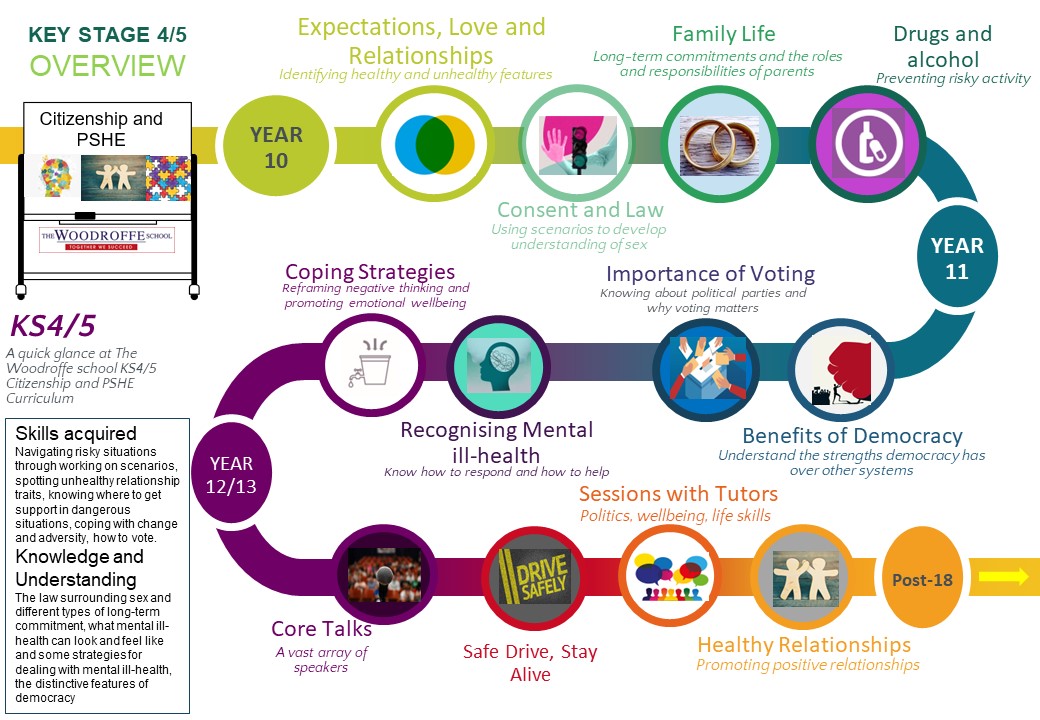Citizenship & PSHE
The PSHE and Citizenship curriculum is designed to help give students the confidence, skills and strategies to deal with challenges and experiences they may encounter in their lives. It should make an important contribution to our students’ ability to keep themselves safe and well, and to their personal development.
The emphasis will always be on developing pupils’ understanding, skills and vocabulary so that they have the confidence to make well informed decisions and seek support for themselves and others.

The PSHE and Citizenship curriculum is designed to help give students the confidence, skills and strategies to deal with challenges and experiences they may encounter in their lives. It should make an important contribution to our students’ ability to keep themselves safe and well, and to their personal development. The emphasis will always be on developing pupils’ understanding, skills and vocabulary so that they have the confidence to make well informed decisions and seek support for themselves and others. We want students to understand when to seek help, what help is available, and the likely outcome of seeking support.
We want our students to see diversity and difference as a positive aspect of human existence. We also want students to have a sense of themselves not as an independent, autonomous island, but as an integral member of a wider whole to which they belong and have responsibilities towards. As part of this, we want students to think about what it means to be a part of a relationship, group, family, community or nation and how positive and thoughtful engagement with these can help them and others lead fulfilling and meaningful lives.
The PSHE Association has suggested that there are three strands that should run through a PSHE curriculum and these have been adopted here and broadened to incorporate the promotion of British Values and Citizenship education. The three strands are addressed explicitly in places, but in a broader sense they could be seen as an implicit part of everything that students will learn in PSHE and Citizenship throughout their time at Woodroffe. The three key strands are:
- Health, happiness and wellbeing
- Strong and positive relationships
- Living in the Wider World (belonging, inclusion, diversity and equality)
The curriculum is designed in accordance with the 2020 statutory guidance for Relationship, Sex education and Health Education and the Citizenship National Curriculum.
Intent
The PSHE and Citizenship curriculum is designed to help give students the confidence, skills and strategies to deal with challenges and experiences they may encounter in their lives. It should make an important contribution to our students’ ability to keep themselves safe and well, and to their personal development. The emphasis will always be on developing pupils’ understanding, skills and vocabulary so that they have the confidence to make well informed decisions and seek support for themselves and others. We want students to understand when to seek help, what help is available, and the likely outcome of seeking support.
We want our students to see diversity and difference as a positive aspect of human existence. We also want students to have a sense of themselves not as an independent, autonomous island, but as an integral member of a wider whole to which they belong and have responsibilities towards. As part of this, we want students to think about what it means to be a part of a relationship, group, family, community or nation and how positive and thoughtful engagement with these can help them and others lead fulfilling and meaningful lives.
Implementation
The PSHE Association has suggested that there are three strands that should run through a PSHE curriculum and these have been adopted here and broadened to incorporate the promotion of British Values and Citizenship education. The three strands are addressed explicitly in places, but in a broader sense they could be seen as an implicit part of everything that students will learn in PSHE and Citizenship throughout their time at Woodroffe. The three key strands are:
- Health, happiness and wellbeing
- Strong and positive relationships
- Living in the Wider World (belonging, inclusion, diversity and equality)
The curriculum is designed in accordance with the 2020 statutory guidance for Relationship, Sex education and Health Education and the Citizenship National Curriculum. The Woodroffe curriculum has been planned so that the units in each year build on what has come before and students should be encouraged to reflect on what they have looked at previously when starting a unit so that connections and development of skills and understanding are made clear.
Many of the topics in the curriculum are complex and so whilst it is essential to give pupils impartial and accurate information, lessons should allow for plenty of reflective work and not just be about delivering knowledge. Lessons must also aim to enrich students’ vocabulary so that they can discuss issues with more precision and confidence, provide opportunities to consider strategies to manage challenges and give students time to reflect on the relevance of topics to their own lives now and in the future. It is important that all of these aspects are addressed so that the learning is coherent, realistic and useful.
Impact
Pupils value and look after their own wellbeing and the wellbeing of other people around them and those further away.
Pupils are equipped with the knowledge and strategies needed to make sensible decisions and deal effectively with situations and challenges that they may encounter.
Pupils are ready and able to play their part in society as responsible, active and valued citizens.


